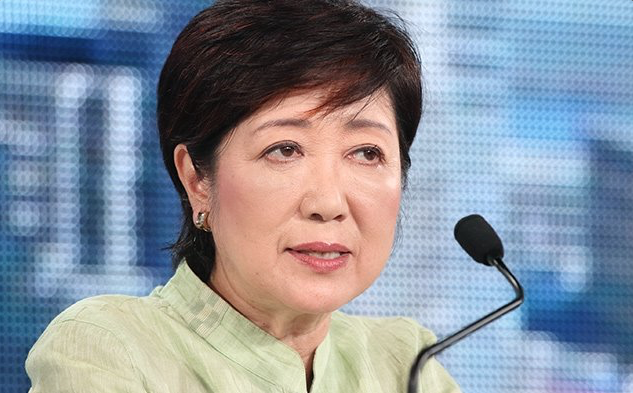In this week’s news roundup we reflect on Japan’s historic victory over Germany. Just over 29 years after the “Tragedy of Doha,” when the country missed out on World Cup qualification thanks to a last-minute goal, fans can now instead speak fondly about the “Miracle of Doha.” The Japanese supporters also won praise for staying behind to clean up the stadium, as did the players for leaving the changing room spotless.
Things aren’t looking so positive for the country’s leader, Fumio Kishida. On Sunday, he saw a third minister in less than a month resign from his cabinet. He’s also under pressure regarding errors in a campaign expenditure report. In other news this week, a government advisory panel proposes raising taxes as Japan plans to double its defense budget. The Supreme Court overturns a murder verdict and Yuriko Koike gives some advice on how to stay warm this winter.
Substitutes Shine as Japan Upset Germany
Following Saudi Arabia’s stunning victory over Argentina on Tuesday, Japan completed the second biggest shock of the FIFA World Cup the following day as they came from behind to beat Germany 2-1. It unquestionably goes down as the Samurai Blue’s greatest ever result in the competition. “I believe it’s a historic moment, a historic victory to say the least,” said manager Hajime Moriyasu after the game. He added that it was “a big surprise,” and that Japan are “now reaching the global standard.”
Germany, who led through an Ilkay Gundogan penalty, were eventually made to pay for their profligacy in front of goal. On 75 minutes, Kaoru Mitoma released Takumi Minamino down the left and his cross was palmed into the path of Ritsu Doan who fired home. All three had come off the bench. It was then another substitute who settled the match. Takuma Asano took down a long ball from Ko Itakura before smashing it into the roof of the net to complete the upset.
Keeping It Clean
It’s a sight we’ve come accustomed to down the years. Win, lose or draw, one thing you can guarantee after a Japanese game is that fans of the Samurai Blue will stay behind after the game to clean up the stadium. In fact, their team doesn’t even need to be involved. A clip shared on Instagram by Bahraini video creator Omar Farooq showed Japanese supporters tidying up after the opening match between Qatar and Ecuador. It has since gone viral.
As well as the fans, the players and coaching staff are also winning people’s hearts with their cleanliness. They left the locker room spotless after the dramatic win over Germany, just as the squad did four years ago in Russia following an agonizing 3-2 defeat to Belgium. Back then, they left a “thank you” note in Russian. This time it was in Arabic along with some origami cranes. We can probably expect more of the same following Sunday’s game against Costa Rica regardless of the result.
Pressure Grows on Kishida as Another Minister Resigns
Another week, another government resignation. On Sunday, Minoru Terada quit his post as internal affairs minister, becoming the third member of Fumio Kishida’s cabinet to resign in less than a month. He follows in the footsteps of former Economic Revitalization Minister Daishiro Yamagiwa and ex-Justice Minister Yasuhiro Hanashi. With the premier preparing to fire him, Terada had no choice but to resign. He’d been under fire for various accounting and funding irregularities, including listing a dead person as the supervising accountant on a political funding report.
“I apologize for the series of resignations. I’m aware of my heavy responsibility for their appointment,” Kishida told reporters on Sunday. The following day, he announced former foreign minister Takeaki Matsumoto as Terada’s replacement. For the PM, things seem to be going from bad to worse right now. On Tuesday, weekly magazine Shukan Bunshun published an article stating that his office had submitted 94 receipts in its campaign expenditure report with no addressee or description. Kishida acknowledged the mistakes on Thursday, vowing to ensure such errors wouldn’t happen again.

Japan is facing escalating national security threats | Image by Hamara/Shutterstock
Wide-Ranging Tax Rises Recommended to Fund Increased Defense Spending
Japan is preparing for its biggest military buildup since World War II with plans to double the defense budget to around two percent of the country’s gross domestic product in the next five years. So, how will this be funded? On Tuesday, a government panel of experts submitted a report to the PM calling for wide-ranging tax rises. “Recognizing that the entire nation must cooperate in this, it’s necessary to win public understanding with a range of tax measures that spread the burden,” the report said.
The proposal comes as concerns grow regarding security threats posed not just by China but also Russia and North Korea. It’s a situation that’s making Japanese people increasingly uneasy. Tokyo, therefore, needs to acquire “counterstrike capability” against potential armed enemy attack. That’s the view of the panel that drew up the report. Possible tax measures could include more corporate tax from businesses or higher income taxes on individuals. Kishida’s set to announce a revised national security strategy and midterm defense buildup plan by the end of 2022.
Supreme Court Overturns Murder Verdict
Last year the Tokyo High Court sentenced South Korean national Pak Jong Hyon, a former deputy chief editor at publishing company Kodansha, to 11 years in prison for the alleged murder of his wife Kanako. On Monday the Supreme Court overturned that decision, ordering a retrial. It’s the first time a guilty verdict reached by a district court under the lay judge system has been dismissed by the top court after being upheld by a high court.
The defendant was accused of strangling his wife on August 9, 2016. Prosecutors claimed that Pak choked her before throwing her down a flight of stairs to make it look like suicide. He denied the charge, saying she took her own life after becoming mentally unstable from child rearing. At the Supreme Court, the defense argued that the lay judge system prevented critical evidence from being presented in court. Presiding Judge Atsushi Yamaguchi agreed. “The case hasn’t been fully considered,” he said.

Yuriko Koike | Image via ld_blogos/Shutterstock
Japanese Residents Advised to Wear Turtlenecks This Winter
The Japanese government is asking residents and businesses to conserve energy this winter, beginning from next Thursday. So, how can we save electricity and stay warm in the coming months? Wear turtlenecks. That’s the advice of Tokyo Governor Yuriko Koike. “Warming the neck has a thermal effect. I’m wearing a turtleneck myself and wearing a scarf also keeps you warm,” she told reporters on Friday. Koike added that French President Emmanuel Macron was “taking a lead in wearing turtlenecks.”
It’s part of the country’s “warm biz” strategy. Citizens are being asked to turn off unnecessary lights, keep air conditioner temperatures low and wear warm clothes inside. Families are also being urged to huddle in a single room when watching television and refrain from using toilet warmers. Japan has been hit particularly hard by the global energy crisis as around 90 percent of its energy is imported. Countries such as France and Germany are also calling on their citizens to save electricity this winter.









